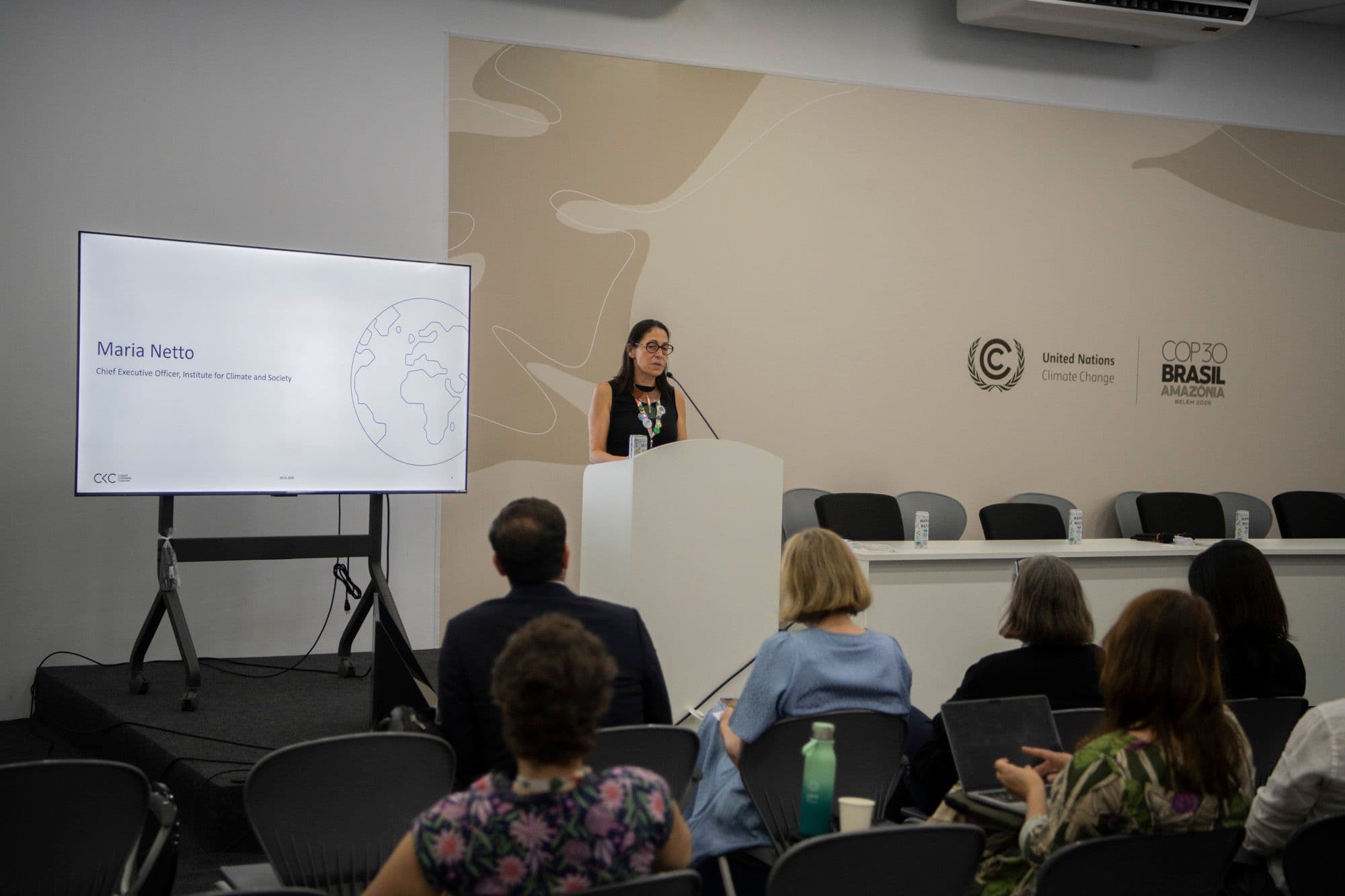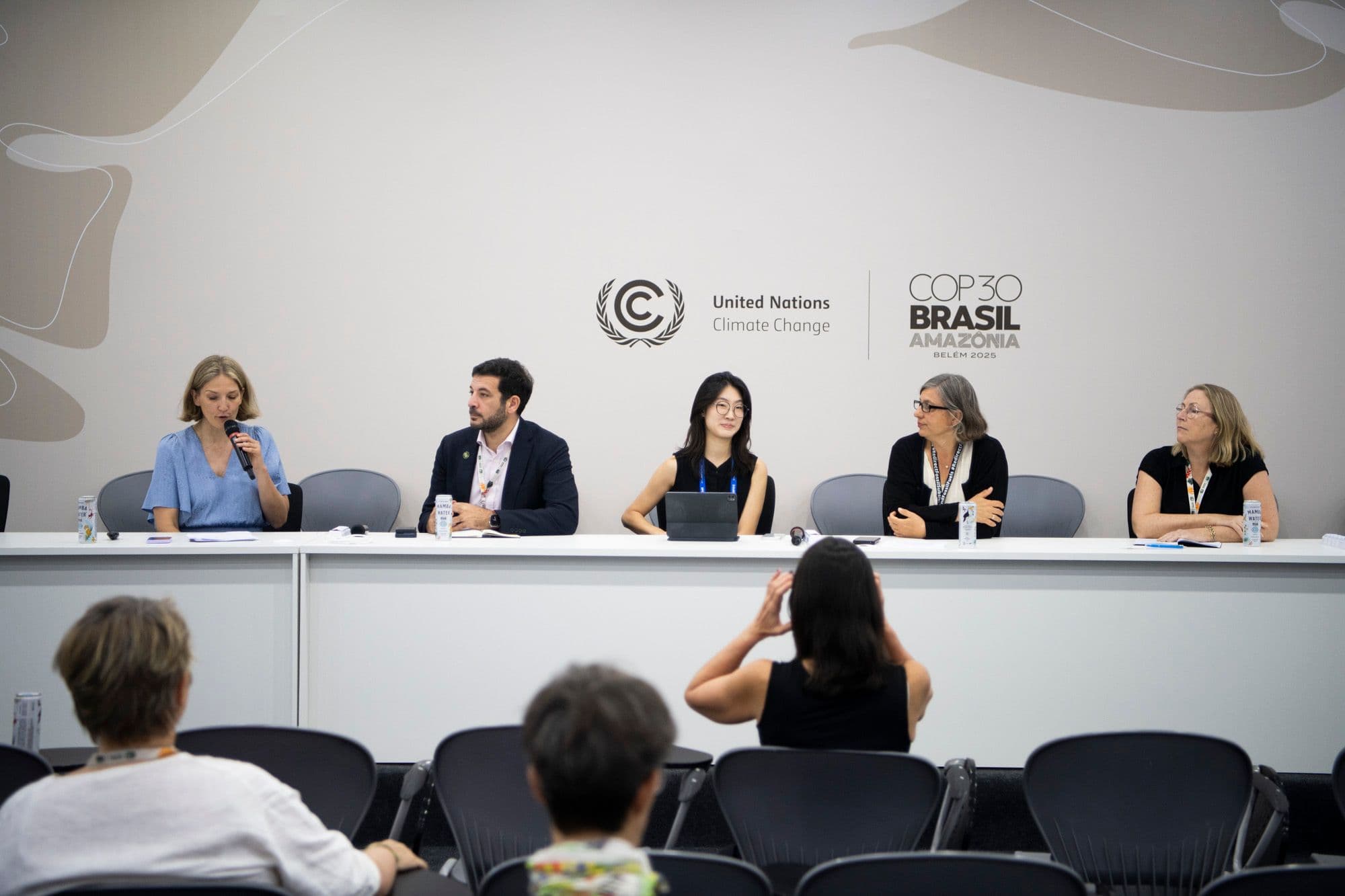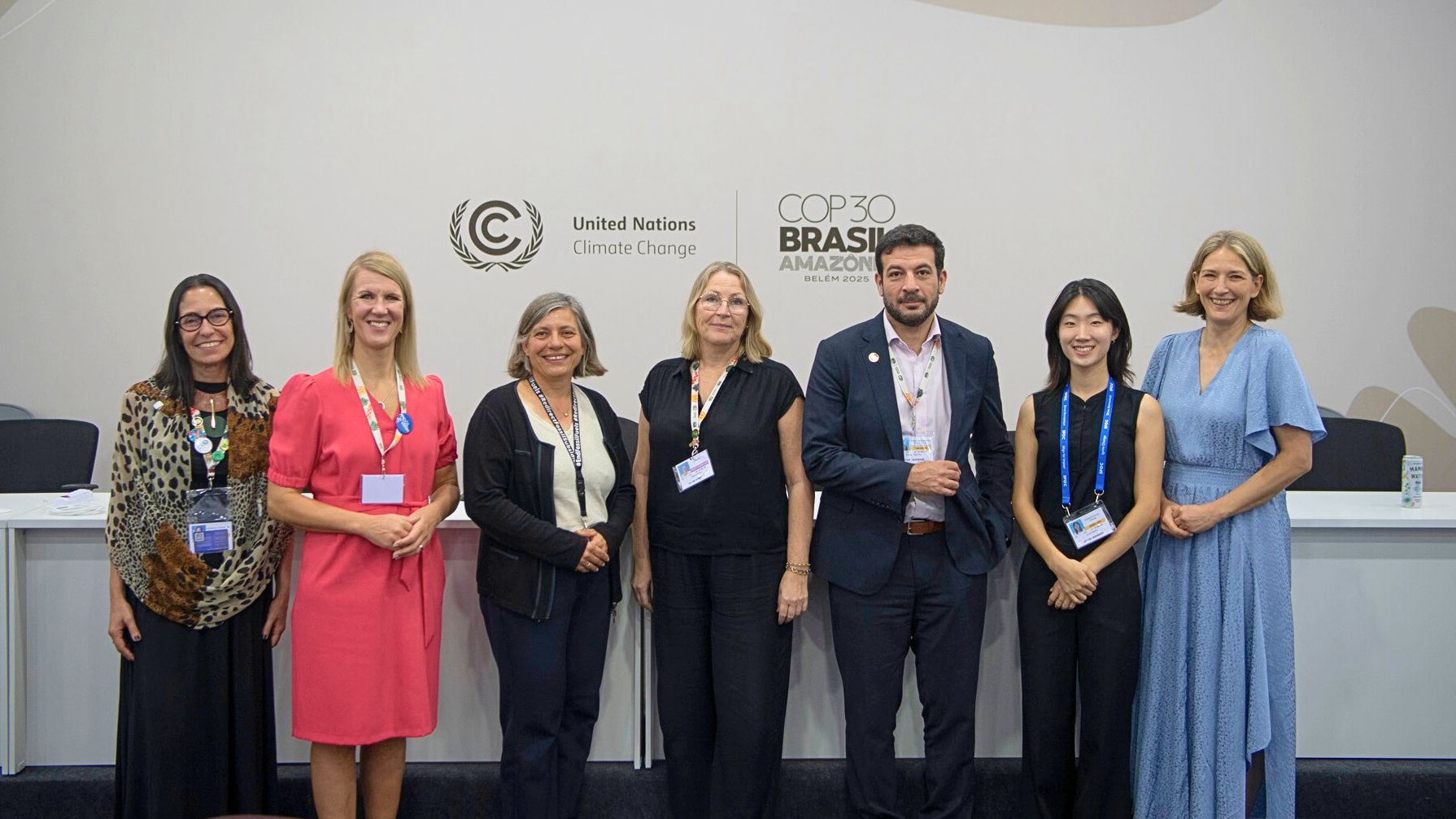CLC closed its program at COP30 with an official UNFCCC side event focused on industrial decarbonization and near-zero emissions steel. The key message from the event was that decarbonizing hard-to-abate sectors depends largely on the availability of clean energy and green hydrogen. Simultaneously, global cooperation in both multilateral and bilateral forums is essential and stable and long-term climate policy commitments will be key to unlocking investments.
Opportunities and challenges in low-carbon steel production
The event was opened by Peter Schniering, CEO and Founder of the co-hosts of the event, Future Cleantech Architects. Schniering emphasized the following: investment cycles and raw material constraints limit scalability, and hydrogen, central to near-zero emissions steel, also comes with challenges such as high costs of electrolyzers and transport challenges.At the same time, innovations are accelerating.
According to Schniering, the next decade will be decisive. Avoiding negative lock-in from outdated technologies will require bold investments in clean technologies, rapid innovation, and global collaboration. Clean electricity will be the backbone of industrial transformation, and partnerships across industries and governments will determine success.
Holistic approach to industrial transformation
The second keynote was delivered by Maria Netto, Executive Director of Brazilian Institute for Climate and Society. She elaborated on the pivotal role of Brazil in the global steel industry and iron value chain — Brazil remains one of the largest iron producers.

Netto emphasized that steel decarbonization must be approached holistically. Beyond transforming production processes, we need to also address shipping, construction, and other downstream emissions. A value chain perspective is essential: for example, in Brazil, the mining company Vale alone consumes 2% of the country’s diesel, illustrating how emissions extend far beyond the furnace. Part of this systems view, she noted, is understanding the minimum requirements and standards needed to reach net zero. Clear and aligned standards are crucial for both producers and buyers.
As Schniering, Netto called for strong global cooperation to establish interoperable standards and best practices, while also encouraging local action to advance green steel markets. Technologies such as green hydrogen are not yet scaled and will require international trade, investment, and collaboration, including with Europe, to grow.
Regional perspectives on decarbonization
The panel discussion offered diverse regional insights into industrial decarbonization. Karim Elegendy from the Carboun Institute emphasized the MENA region’s competitive edge, citing abundant low-cost solar energy and its strategic position between Europe and Asia.
From South Korea, Juna Hwang noted that steel is one of the country’s largest emitters. While automakers are pushing for green steel, the transition is slowed by supply-chain constraints, insufficient demand, the absence of common standards, and persistent financing gaps.

Viviane Raddatz of WWF Germany highlighted that Germany still relies heavily on coal-based steel production. An unstable political environment and mixed signals from the government are hindering long-term investment, while dependence on imported energy adds further complexity.
Helen Ågren, from the Swedish Government Inquiry on Strengthening Sweden's International Climate Action, underscored the critical role of stable, long-term policies. Other panelists echoed this point, identifying policy uncertainty, weak demand signals, and constrained financing as major bottlenecks to scaling low-carbon alternatives. They highlighted the need for common standards, instruments such as the EU’s Carbon Border Adjustment Mechanism (CBAM), and stronger engagement of NGOs and the private sector to overcome these barriers.
Minister Sari Multala stresses the importanceo of international collaboration
In her closing remarks, Sari Multala, Minister for Climate and the Environment of Finland, stressed that Finland remains committed to its ambitious 2035 climate goal, and achieving it will require close cooperation between governments, businesses, and international partners.
However, according to Multala, issues such as rising protectionism are critical for a fair and sustainable transition. International cooperation must reinforce, not hinder, the transition. Whether through the WTO, plurilateral initiatives, or bilateral partnerships, trade processes should support one another. In this context, the EU’s CBAM is a key instrument for ensuring a level playing field. Finland strongly supports CBAM as a way to put a price on carbon and secure fair markets. For CBAM to work as intended, however, reliable and comparable emissions data is essential.
Minister Multala also pointed to public procurement as a powerful driver of demand for low-carbon and circular solutions. Yet, the lack of universal definitions and standards for low-carbon industrial products remains a significant barrier. Without clear criteria, the risk of greenwashing grows, undermining trust and transparency in markets.
Multala concluded that as global competition intensifies, right policies, fair market conditions, and a strong foundation in circular economy solutions, can help industries not only decarbonize but also strengthen their competitiveness and resilience for the future.


